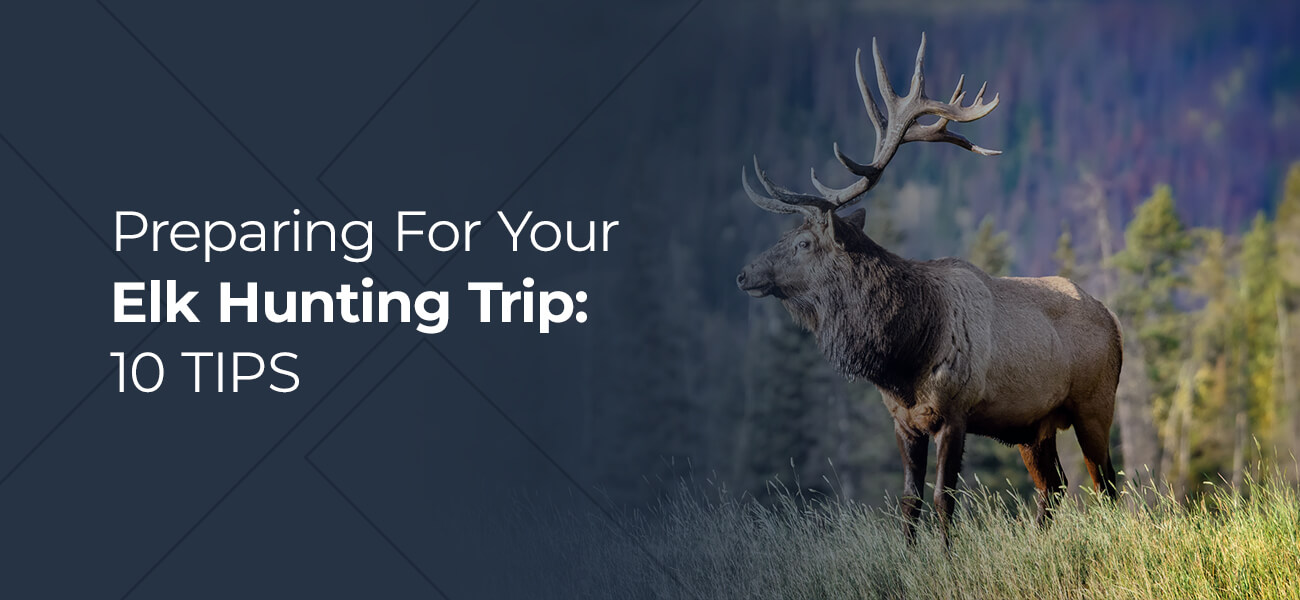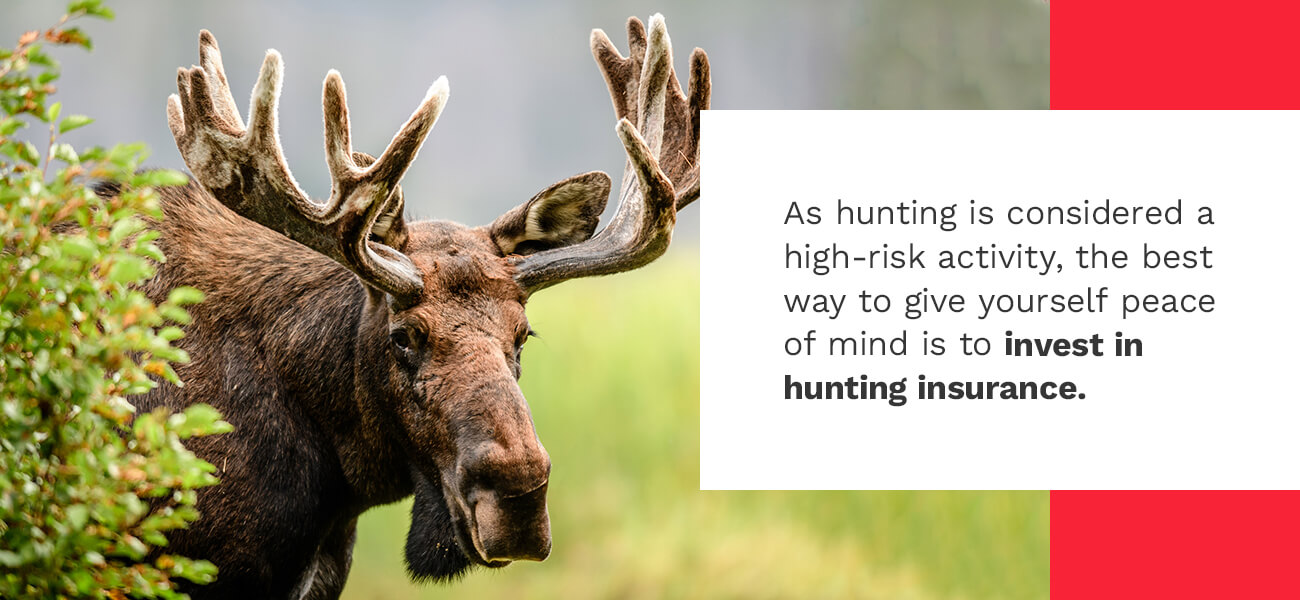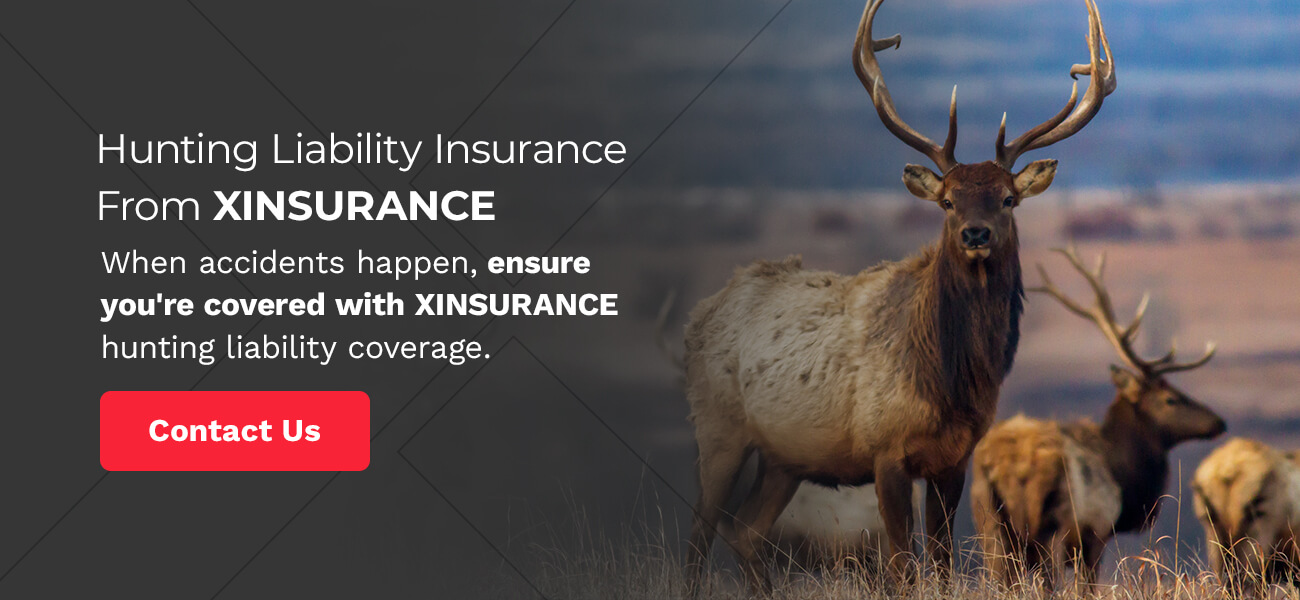
Preparing For Your Elk Hunting Trip: 10 Tips
According to the most recent survey from the United States Fish and Wildlife Service, more than 101 million Americans participated in wildlife activities, such as hunting, in 2016. Specifically, elk hunting has become increasingly popular in recent years, especially in the Midwest. If you’re planning to hunt big game like elk, you’ll want to consider the following elk hunting safety tips for an enjoyable hunt.
10 Tips to Prepare for an Elk Hunt
Taking the time to prepare before any hunting trip is essential to ensure your hunt goes as smoothly as possible. It’s crucial to understand that hunting is a dangerous activity — but one that you can make much safer when practicing the right measures. Of course, you also want the chance of encountering the most animals, which makes preparation even more crucial.
Before donning your gear and entering the woods, consider the 10 elk hunting tips below.
1. Hike Away From the Trailhead
There are many actions that can scare off a herd of elk. As humans enter elk habitats to hunt, hike and ride ATVs and mountain bikes, elk move out of their normal roaming grounds to avoid human contact. These creatures can travel far distances to places they’re unfamiliar with to avoid humans.
That’s why you’ll want to hike a few miles away from the trailhead or the road where you parked your vehicle. Often, setting off on the least-followed path gives you a chance to see more animals. Be sure to mark the path you take so you can find your way back safely.
2. Be Physically Prepared
Because elk live in mountainous terrains, your chances of capturing one are slim unless you’re physically capable. Variables like strenuous hiking and long days and nights in the mountains can easily take a physical toll on a hunter. Before you get out on the hunt, make sure your body is up to the challenge. To make the experience easier on your body, you may want to invest in equipment to help you transport whatever you catch.
3. Consider Using Satellite Trackers
Whether you’re hunting with a group of people or embarking on a solo trip, elk hunting safety should be a priority.
Communicate with friends and family about where you’re going, when they should expect to hear from you and how long you’ll be gone. Additionally, speak to a warden about phone service in the area. Depending on the answer, you may want to consider using satellite trackers or phones. This way, you can send and receive messages even without service — and emergency services can pinpoint your location in certain circumstances.
4. Practice Calling and Stalking
Both calling and stalking a bull are important steps in an elk hunt. Many elk hunters make the mistake of doing each technique separately, though you’ll find more success when you use them together. If you call an animal and get a response, quickly determine where the response came from and stalk the animal to get as close as possible while remaining undetected. Even if you’re unable to get a shot, stalking the elk puts you in the place for a better opportunity later in the day or the next morning.
5. Have the Proper Gear and Equipment
Having proper clothing and equipment can make a significant difference in your hunt. Ensure your clothes and boots are comfortable for the weather you’ll be hunting in and for walking long distances of backcountry terrain. Aside from your bow or rifle, a quality pair of binoculars is one of the most important pieces of equipment to have — binoculars can save you a lot of walking and enable you to spot the animals from far away.
Other equipment and gear will largely depend on your hunt. For example, you’ll need a backpack to carry your gear, though the type of backpack will depend on what you’re carrying. If you’re carrying tents, a soft pack may be insufficient, so you’d likely need a frame pack. Take a look at your gear to see what kind of equipment you need to supplement it.
6. Understand the Animal You’re Hunting
Understanding why elk do what they do and what their habits are can significantly help you in your hunt. Knowing the types of food they eat, how they act during the rut, when they begin migrating and what locations they feel secure in can help you determine where to look for bulls and how to draw them in.
It’s also important to understand how elk use their senses so you can evade them. If you make an effort to camouflage yourself and stay low to the ground, an elk is less likely to see you because they struggle to distinguish color and details. Additionally, elk can hear well, and they’ll use their other senses to try and determine whether a sound is a threat. Note that their sense of smell is remarkable, so if they smell you, they’ll leave the area immediately.
7. Scout the Area You’ll Be Hunting
It’s always a good idea to be familiar with the area you’ll be hunting in. Before leaving the house, look at topographical maps and Google Earth views. Read hunting articles to do research beforehand. It’s also helpful to contact hunters in the area to see what their experiences have been like. If you’re able, visit the land you’ll be hunting on during a warmer season to see what the area is like and take note of landmarks and where the elk are traveling.
While every location, animal, and hunt will be different, it’s best to be as prepared as possible before you get there.
8. Know How to Handle Your Weapon
While it may seem obvious, it’s worth saying — know your weapon and know it well. Whether you’re hunting with a bow or a rifle, it does you no good if you’re unable to use it successfully. Be sure to choose a weapon you’re comfortable equipping. It’s also important to take practice shots and scope in your rifle or bow to ensure it’s as accurate as possible.
9. Be Patient
Successfully hunting any animal takes patience and dedication. Many experienced hunters go years without harvesting an elk, and some go just as long without seeing one. Therefore, be patient and give yourself time to succeed. The right mindset can help you get through days when you don’t see anything.
10. Get Elk Hunting Insurance
Proper elk hunting trip planning takes time and thought. Unfortunately, you can’t always prepare for accidents or mistakes. As hunting is considered a high-risk activity, the best way to give yourself peace of mind is to invest in hunting insurance. With coverage in your back pocket, you can enjoy your hunting trip without having to worry about legally protecting yourself should an emergency occur.
Hunting Liability Insurance From XINSURANCE
When it comes to hunting, you can never be too safe. Despite even the best safety measures, accidents can still happen. When accidents happen, ensure you’re covered with XINSURANCE hunting liability coverage. Find coverage solutions for your situation, whether you’re a solo hunter or part of a club. Even if you’ve been denied hunting insurance in the past, we’d love to try and find a solution for you.
Contact us today so you can be confident you’ll be covered on your next hunting trip.

Rick J. Lindsey hails from Salt Lake City, Utah. He began working in the mailroom of his father’s Salt Lake City insurance firm, getting his introduction to the business that became his lifelong career. Rick J. Lindsey quickly rose through the ranks while working in nearly every imaginable insurance industry job. As an entrepreneur, specialty lines underwriter, claims specialist, risk manager, and a licensed surplus lines broker, Rick J. Lindsey is highly skilled in all levels of leadership and execution. As he progressed on his career path, Rick J. Lindsey discovered an urgent need for insurers willing to write policies for high-risk individuals and businesses. He was frequently frustrated that he could not provide the liability protection these entities desperately needed to safeguard their assets. He also formed the belief that insurance companies acted too quickly to settle frivolous claims. Rick J. Lindsey decided to try a different approach. He started an insurance company and became the newly formed entity’s CEO. This opportunity has enabled Rick J. Lindsey to fill a void in the market and provide a valuable service to businesses, individuals, and insurance agents who write high-risk business. XINSURANCE also specializes in helping individuals and businesses who live a lifestyle or participate in activities that make them difficult for traditional carriers to insure. If you’ve been denied, non-renewed, or canceled coverage, don’t give up quite yet. Chances are XINSURANCE can help.



